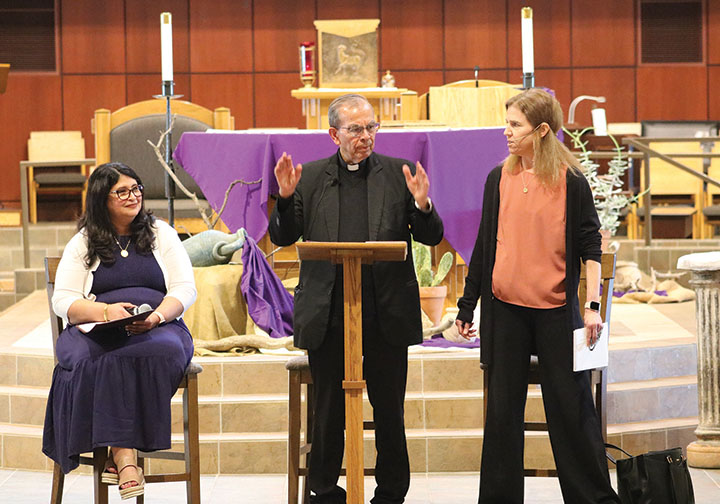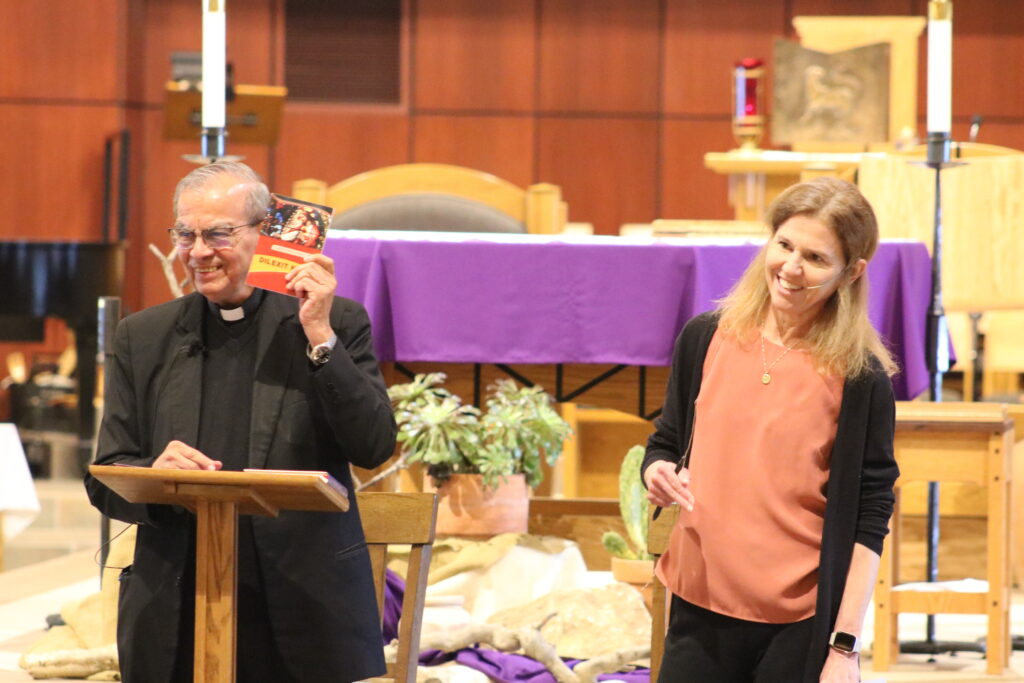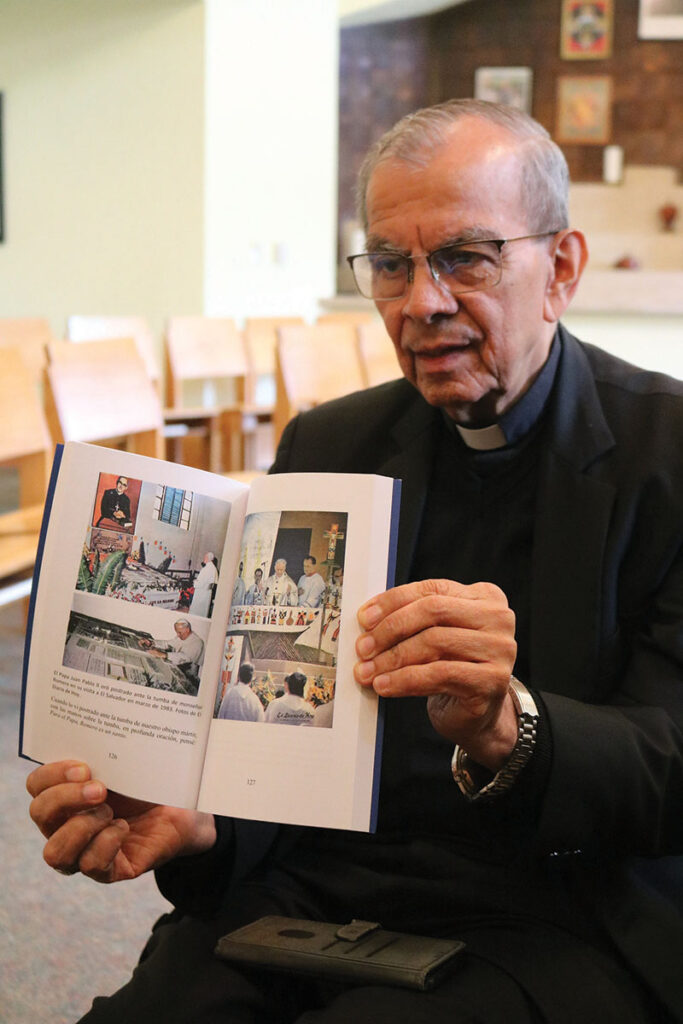
by Marc and Julie Anderson
mjanderson@theleaven.org
SHAWNEE — It’s not every day a cardinal from El Salvador comes to visit your parish.
Good Shepherd Church in Shawnee, though, has a unique relationship with El Salvador.
Since 1987, the parish has maintained a sister relationship with El Buen Pastor, a community (not a parish) in El Salvador. Parishioners have gotten to know many people there, including Cardinal Gregorio Rosa Chávez, the first cardinal from El Salvador.
On March 29, the cardinal, who was appointed in 2017 by Pope Francis, celebrated the evening Mass at Good Shepherd and participated in “Finding Hope in the Jubilee Year: A Conversation with Cardenal Gregorio Rosa Chávez.”
This marked the first time the cardinal visited the Kansas parish, but it was his fifth trip to the Kansas City metro area to celebrate the legacy of St. Óscar Romero, martyred on March 24, 1980, while celebrating Mass. The cardinal, a close friend of the saint, worked with him for several years.

In his opening remarks, the cardinal shared a story from early in his priesthood.
“When I was a young priest, a woman that was poor approached me and asked me for help,” he said.
He didn’t have a lot of money to offer her. He told her, “Woman, don’t lose your hope. She looked at me and said, ‘Yes, Father. Hope doesn’t feed you, but it sustains you.’”
“I felt very humbled,” recalled the cardinal.
Yet it was hope that he had come to talk about — specifically the current Jubilee Year of Hope, during which he said that parishes needed to evangelize.
“Pope Francis says people need to hear good news,” he said. “They don’t feel the joy of the Gospel. He tells the pastors, ‘You have to smell like the sheep. You have to walk with the people and go before them, among them and behind them.’”
“Who needs hope?” Cardinal Rosa Chávez asked the crowd. “The ones who reject human life, the poor, the sick, the elder, the youth, migrants. The world has no hope, and without hope, there’s no future.”

Comparing life to a ship at sea, the cardinal said people get tossed about in the storms of life and might not choose the right direction or the right anchor.
“The world needs this anchor that is Jesus Christ. Hold onto it. . . . There is no resurrection without a cross. That’s the way of hope,” the cardinal said.
A Q&A session followed the cardinal’s presentation.
During an interview that morning, Cardinal Rosa Chávez discussed what his visit to the parish meant to him.
“This is a very special parish,” the cardinal said, and he’s been inspired by how the parish lives out its Christian commitment to the poor, especially the people of El Salvador. He “feels home,” he added, in huge part thanks to the love and friendship of the parishioners who support the El Buen Pastor community.
In the interview, he expanded on the life and martyrdom of St. Óscar Romero, sharing stories and photos from “Conversations with Cardinal Rosa Chávez,” a book currently only available in Spanish and awaiting a publisher of an English edition.

Recalling the day of the saint’s martyrdom, the cardinal said the archbishop took a nap after lunch, then went to the church to “pray for a long time in front of the Blessed Sacrament.
“[Archbishop Romero] had this profound relationship with the Blessed Sacrament,” said the cardinal.
On his way home, the future saint stopped to see his confessor. That evening, while celebrating Mass in the chapel of Divine Providence cancer hospital where he lived, a single bullet struck him in the heart.
Although he appreciated the movie “Romero” produced in the late 1980s, the cardinal said the film got a few of the historical details wrong.
“That doesn’t happen that way,” said the cardinal of the final moments of the saint’s life. “We have pictures. We have recordings. There were few people in the chapel. There were no people helping — not even servers. It was a private Mass. He didn’t move from the center of the altar. He himself read the readings of the day.”
But there is value in knowing the historical truth.
“It’s a treasure for us to know the actual facts that happened,” concluded Cardinal Rosa Chávez. “It’s the only case we have of a bishop dying at the altar and that he died at the time of the offering.
“That day, the sacrifice — the victim — was him. That was the offering of his life, the seal of God.”






